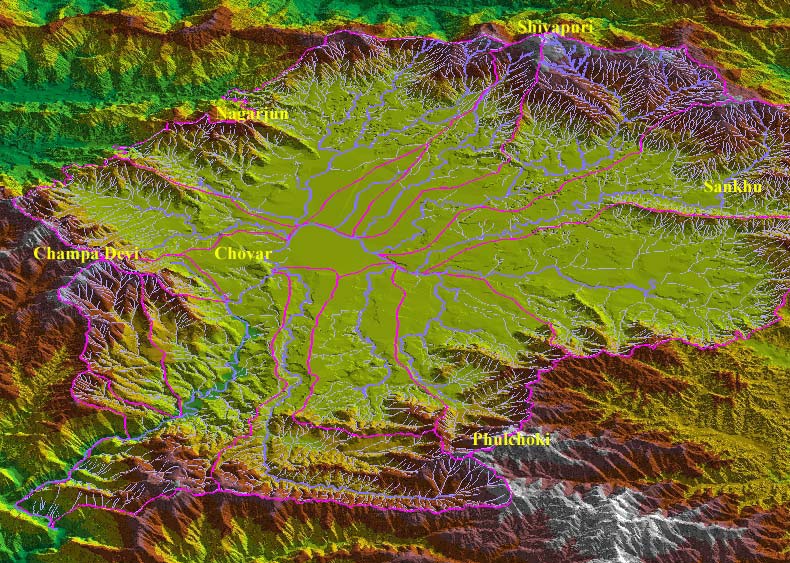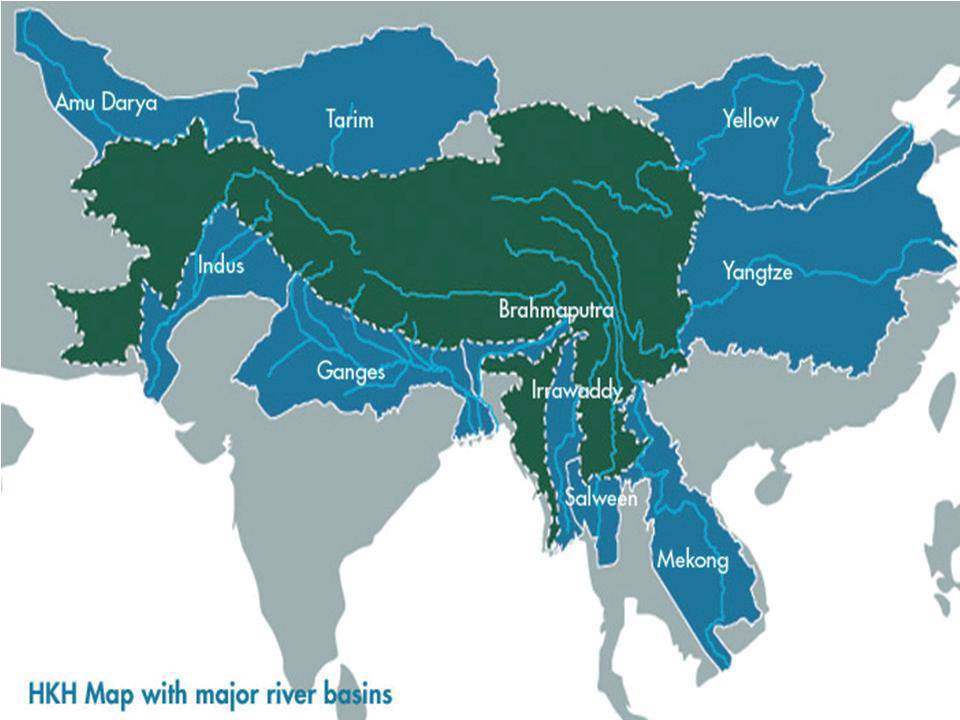Rivers
One day seminar ‘What we must do to save the rivers of Maharashtra’, NWO, Pune, January 30, 2012
Posted on 12 Jan, 2012 10:21 AMOrganizers: National Womens Organization (NWO),
Gandhi National Memorial Society(GNMS),
National Ganga River Basin Authority (NGRBA).
Shades of blue: A symposium on emerging conflicts and challenges around water - Seminar magazine
Posted on 10 Jan, 2012 07:53 PM(as posed by Sunjoy Joshi, Director and Distinguished Fellow, Observer Research Foundation, Delhi)
Floods in Orissa: No lessons learnt – An article in EPW
Posted on 06 Jan, 2012 02:26 PMThis article by Kishore C Samal in the Economic and Political Weekly (EPW) discusses how in the natural disater prone state of Orissa the authorities have not been able to draw up an effective disaster management plan and politicians continue to play politics with relief works. It argues that for dealing with these disasters and the relief and rehabilitation work that follows what is needed is the participation of the local community and functionaries of panchayati raj institutions, and coordination with national and international bodies.
Big dams and protests in India: A study of Hirakud dam – An article in EPW
Posted on 06 Jan, 2012 12:29 PMIt is evident that the domestic resistance to the project was variously compromised by nationalist rhetoric, imperatives of state development and absence of transnational support. The Hirakud dam project has failed on all of its objectives – flood management, hydropower production, irrigation and navigation. Its socio-economic impact has been devastating.
Living rivers, dying rivers: Bagmati river in Nepal
Posted on 05 Jan, 2012 06:07 PMBagmati river in Kathmandu: From holy river to unthinkable flowing filth

Ajaya Dixit initiated his presentation with a general account of how rivers shape the landscape and how riverine ecosystems have nurtured society and kept civilisations vibrant, cultured and creative. Dixit went on to discuss the basin characteristics of the Bagmati, a tributary of the Kosi that rises in the Shivapuri hills, north of the Kathmandu valley. Around fifteen percent of the basin area (3700 sqkm) lies in Nepal, while the remaining is in India. The average annual rainfall in the basin is 1400 mm and is more than 2000 mm in the hills. Bagmati is a seasonal river with rainfall and springs as its main source. Its mean flow is 15.6 cubic metre/second and low flow is 0.15 cubic metre/second in April.
Kathmandu lies in the Upper Bagmati basin and studies suggest that an ancient lake called the Paleo-Kathmandu lay within the Kathmandu valley as a lacustrine formation. Early settlers lived in lower slopes and used springs and river in the upper reaches. When they moved to the valley floor, they built dongia dharas, which are stone water spouts fed by the unconfined aquifers and delivered water through surface channels. Even today, dongia dharas dated back to 1500 years exist. The state built canals (raj kulo) tapped the upper stretches of the rivers close to the mountains. Rivers and irrigation helped recharge aquifers and ponds.
However, rising urbanisation has damaged these ancient artifacts. Over the last sixty years Kathmandu has expanded massively and its population has increased from 0.41 million in 1951 to 2.6 million in 2011. The city has a huge transient population aside from this, reducing it to a concrete nightmare. Seismologists suggest that Kathmandu is a rubble city in the making. Though the Bagmati river flow has not changed significantly in the last seventy years, the character of the river has been transformed significantly during the period 1970 to 1990. The river has been canalised while the dumping of the city’s garbage into it continues. Dixit identified a plethora of problems faced by the river such as upstream water diversion for drinking water needs, disposal of untreated liquid waste, disposal of solid waste, river jacketing for roads and commercial activities, sand mining and physical encroachment.
The state of the river is an outcome of the current approach to waste management particularly liquid waste management. Three types of waste water namely yellow water flux, grey water and yellow black flux are being generated and flowing water is being used as a vehicle to dispose these. The idea of a water based disposal system e.g. flush toilet embedded in Victorian engineering has led to a technological lock-in with the result that the notion of a natural hydrological cycle has undergone a fundamental transformation.
All the same, the bulk of the load in the river is biological though there are some factories releasing effluents. In the last 20 years some of them have been closed or relocated and the river now stands a chance of being salvaged.

Living Rivers, Dying Rivers - Eighth in the series of lectures at India International Centre - Rivers in Karnataka , January 28, 2012, New Delhi
Posted on 04 Jan, 2012 03:37 PMDescription:
The eighth in the series of lectures titled "Living Rivers, Dying Rivers" that aims at understanding what has been happening to rivers across India and drawing appropriate lessons is scheduled to be held on January 28, 2012 at the India International Centre, New Delhi. The series is coordinated by Prof. Ramaswamy R. Iyer. The lecture will be delivered by Leo Saldanha, prominent environmental activist, Bangalore.
A plan for resolving Mullaperiyar conflict in Kerala - Forum for Policy Dialogue on Water Conflicts in India
Posted on 31 Dec, 2011 12:56 PMGuest Post: Forum for Policy Dialogue on Water Conflicts in India
The Forum for Policy Dialogue on Water Conflicts in India has been closely following the Mullaperiyar issue for the last several years. The polarisation of views around the Mullaperiyar has hardened over the years. The Tamil Nadu government insists that the Mullaperiyar dam is safe and that the water level must be maintained at the maximum level as per the agreement. The Kerala government insists that a new dam, downstream of the present dam, must be built because the present dam is unsafe. The recent tremors with their epicentres near the dam and the already diminishing trust and rising fears and apprehensions on both sides have created a grave situation needing immediate intervention and your initiative in getting the two parties together is a welcome move.
Interdisciplinary approach to water management: From the uplands to the coast - The Ganges-Brahmaputra-Meghna Basin
Posted on 30 Dec, 2011 11:04 AMIn this paper, Jayanta Bandopadhyay explains the need for an interdiscipliinary framework for water resource management. He states that this framework needs to include ecological, social, economic and institutional perspectives. These perspectives are essential to facilitate cooperation over the management of transboundary rivers.

Alternative National Water Policy by Ramaswamy R Iyer - Comments by Rahul Banerjee
Posted on 28 Dec, 2011 02:24 PMGuest Post: Rahul Banerjee
Ramaswamy Iyer has made a commendable effort to draft a National Water Policy that tries to reform the current unsustainable approach to water resource management in this country (EPW Vol XLVI Nos 26&27 Supplement pp 201). Assuming that this draft is an invitation to a larger public debate on the issues involved I would like to make a few comments on it.
National Alliance for People s Movements condemns arrest and harassment of anti-dam protesters in Assam
Posted on 28 Dec, 2011 12:10 PMContent courtesy: National Alliance for People's Movements
On the 26 December, 2011, at 2:15 am, Assam Police in collusion with other security forces swooped down on the protesters at Ranganadi who have been blockading the Highway since December 16 and thwarting state’s attempt to carry turbines and dam materials to project site of Lower Subansiri Dam. Nearly 200 people have been arrested and earlier also security forces have been harassing the protestors. In past too, Krishak Mukti Sangram Samiti fighting against the big dams on Brahmaputra have faced government’s ire and often been attacked and jailed. NAPM stands in solidarity with KMSS and other students groups of the region who have been consistently opposed to the big dams in highly sensitive seismic zone. We condemn the sustained action and harassment of KMSS and their activists and targeting of Akhil Gogoi for constantly opposing the destructive development policies and corruption of the government machinery.




